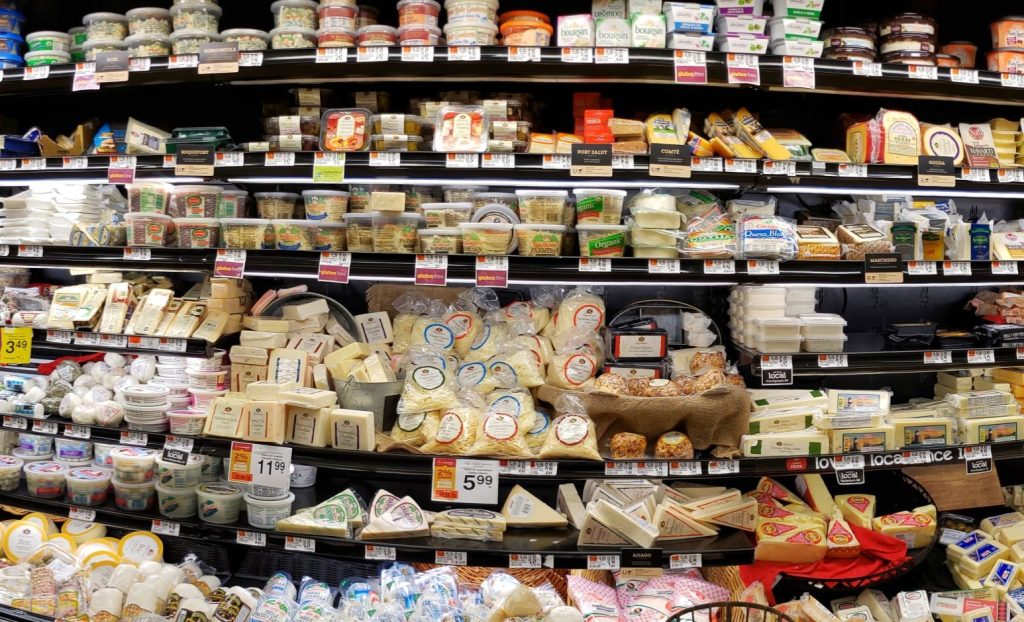McDonald’s, PepsiCo and Ahold Delhaize add to growing support for regenerative ag
Retailers, commodity giants and food brands are partnering to support farmers in cutting emissions and drawing down carbon. Read More

-
- McDonald’s is investing more than $200 million to accelerate regenerative practices on 4 million acres.
-
- PepsiCo, Unilever, Danone and Ahold Delhaize U.S.A. launched separate initiatives to cut carbon dioxide and methane emissions from cropland and dairy operations.
-
- The multi-party nature of the projects reflects the potential of regenerative agriculture to strengthen food production and reduce its impact on the environment.
Companies from across the food and agriculture sector unveiled new initiatives this week in a bid to boost the already substantial expansion of regenerative agriculture across North America.
Regenerative methods offer huge potential benefits. By reducing tillage, changing grazing patterns, planting cover crops and deploying other techniques, producers can boost yields and save on fertilizer costs. And because the methods also cut farmland emissions and sequester carbon in soils, food companies and retailers see reductions to Scope 3 inventories, which include upstream emissions from producers.
Adoption is growing but varies widely. While just over a quarter of cropland acres were managed using no-till in 2022, the year of the most recent Department of Agriculture census, cover crops were planted on less than 5 percent of that same area. Two key barriers to further scale, cost of deploying regenerative methods and a lack of expertise among producers, were among the focus areas for the partnerships announced this week.
The new initiatives
- McDonald’s is investing more than $200 million over the next seven years to accelerate regenerative grazing and wildlife conservation on ranches spanning 4 million acres and up to 38 states. A group of McDonald’s suppliers, including Cargill and Coca-Cola, will provide additional funding to the National Fish and Wildlife Foundation, a conservation organization that will award grants to support ranchers.
- PepsiCo, Unilever and others will provide financial and strategic support to farmer organizations working to scale regenerative methods among local producers. Phase one of the program, known as Supporting Trusted Engagement and Partnership (STEP) up for Agriculture, includes three groups assisting farmers in Canada and the U.S. Two philanthropic funders, the Platform for Agriculture and Climate Transformation (PACT) and the PepsiCo Foundation, will also provide backing.
- Danone and Ahold Delhaize U.S.A., a retailer that owns Food Lion, Giant Food and other chains, are investing an undisclosed sum in supporting dairy farmers in Danone’s supply chain to reduce methane emissions. The Nature Conservancy, a nonprofit, will contribute technical and financial expertise.
Why the investments make sense
The multi-party nature of these collaborations reflects a growing awareness of the potential of regenerative agriculture to safeguard food production, reduce emissions and benefit farmers. Agriculture giant ADM, for instance, said earlier this month that it hit its target of deploying regenerative practices on 5 million acres a year ahead of schedule. PepsiCo’s support for STEP up for Agriculture is linked to its commitment to scale regenerative agriculture to 10 million acres by 2030.
For Ahold Delhaize U.S.A., the Danone partnership is an opportunity to learn about specific interventions that reduce methane emissions from dairies — including better management of manure — and the extent to which those methods can reduce the retailer’s Scope 3 numbers.
“Part of the learning is how do we translate what we do on farm into our reporting,” said Kendrick Repko, vice president for health and sustainability at Ahold Delhaize U.S.A. “Because currently we use a spend analysis type of calculation. So as our sales grow our emissions grow, and we don’t have a good mechanism at the moment to translate the on-farm reductions into our overall emissions. That’s something our team is evaluating and seeing how we can get a better tool to get to that more granular level.”
On the Danone side of the partnership, the work will help underpin an industry-leading target of reducing methane emissions 30 percent by 2030. “We really need to work across the value chain and collaborate in order to get right our minus 30 percent goal,” said Melanie Chow Li, the company’s vice president for mission and sustainability.
Working with North American farmers is another benefit, she added: “Over 90 percent of our ingredients are sourced from U.S.-based farms and 100 percent of our milk is U.S.-based. By working on regenerative agriculture practices through this partnership, we’re strengthening the domestic supply chain and finding a way to build long term resilience in these locations. I think that’s ultimately where multi-faceted value-chain partnerships have a lot of value.”

Subscribe to Trellis Briefing
Featured Reports

The Premier Event for Sustainable Business Leaders
















